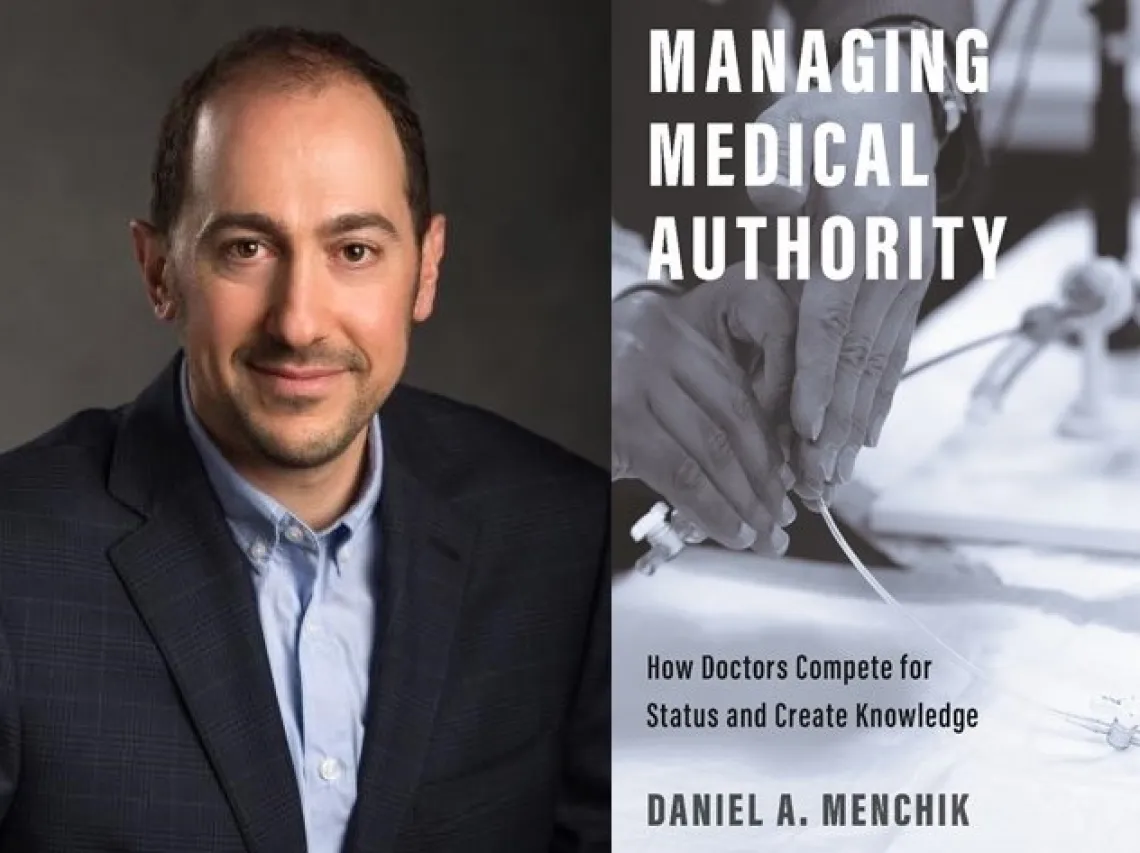Sociologist Explores How Doctors Maintain Their Authority

How is knowledge shared throughout the medical profession? How do physicians gain and keep their influence? Who makes decisions when your heart malfunctions – physicians, hospital administrators, or private companies who sell pacemakers? Who decides what health conditions are problems that need to be solved and what the best way to solve them is?
Daniel Menchik, associate professor in the University of Arizona School of Sociology, explores these and other questions in his book Managing Medical Authority: How Doctors Compete for Status and Create Knowledge, recently published by Princeton University Press.
Focusing on cardiac electrophysiologists, or EPS, Menchik began conducting ethnographic fieldwork for his book in 2005. He witnessed surgeries and executive negotiations and watched professional committees craft standards for treatments, case management, and professional ethics.
“At conferences, board rooms, and labs, doctors, administrators, and industry reps allowed me to observe and ask questions about their scholarship, technologies, and practices,” Menchik said. “At an industry meeting I even navigated a catheter to the left pulmonary vein of a pig.”
“This fascinating, surprising, and unsettling book provides an unprecedented backstage view of the dynamics of medical authority and reveals how the medical profession maintains its power despite substantial challenges and change,” wrote Brea L. Perry, sociology professor at Indiana University.
Defining the Problem, Influencing the Solution
In medicine, various stakeholders including doctors define physical or mental conditions as healthy or unhealthy and decide how they should or should not be managed.
For example, medical professionals decide “how something gets recognized as problematic, like hyperactivity, which could be defined as ADHD, or it could be defined as being a 12-year-old boy,” Menchik said. “And treatment could be Ritalin, or it could be recess.”
How these decisions are made are complicated, but the status of a physician plays a role.
“The competition for status among these doctors ends up determining who sits on influential panels, who gets to shape the guidelines, and who gets to be PIs in clinical trials,” Menchik said. “And that ends up having a real influence on the problems that are of concern to this group and the solutions, the treatments. This status competition is the means by which doctors organize their occupational project, determine what’s the most up-to-date medical knowledge, and maintain medical authority.”
Menchik discovered that there are tight schools of thought, what sociologists call “invisible colleges,” among EPs that organize how they carry out procedures and make decisions about technology.
Menchik also found that there is stratification among EPs, organized in part by referral networks. This stratification system functions to strengthen the field – those clinicians who prefer simpler cases get them and are successful, while more complex cases are referred to standard-setters who may use the newest techniques and technologies, and even if they are unsuccessful, benefit the profession through the research and status these cases provide.
The Role of Industry
When he was first conducting his field work, Menchik said he was surprised to see an industry rep teaching an experienced physician at the bedside.
“Later, it made perfect sense, of course,” Menchik said. “Once doctors leave formal training and face constant shifts in medical knowledge, how else are they going to learn? Yet it was still surprising, and I knew then that industry needed to be a crucial part of my study.”
Menchik found that the relationship between physicians and industry is more complex and nuanced than what is often depicted in the media.
“I frequently saw instances at the bedside and at industry meetings in which industry reps sought to not exploit but to protect the profession – for instance in seeking to prevent the use of their technologies by those who might be unable to use them without causing harm. I had a new appreciation for the value of industry-physician relationships.”
At the same time, doctors were expected to maintain an “arms-length” relationship with industry.
“I saw that there were physicians who were perceived as being too close to industry and were sanctioned by their colleagues,” Menchik said.
How is information on transgressors spread?
“Gossip,” Menchik replied. “And then they don't get invited to speak on panels or serve on guidelines committees. So there is a certain degree of self-regulation among physicians that protects patients.”

